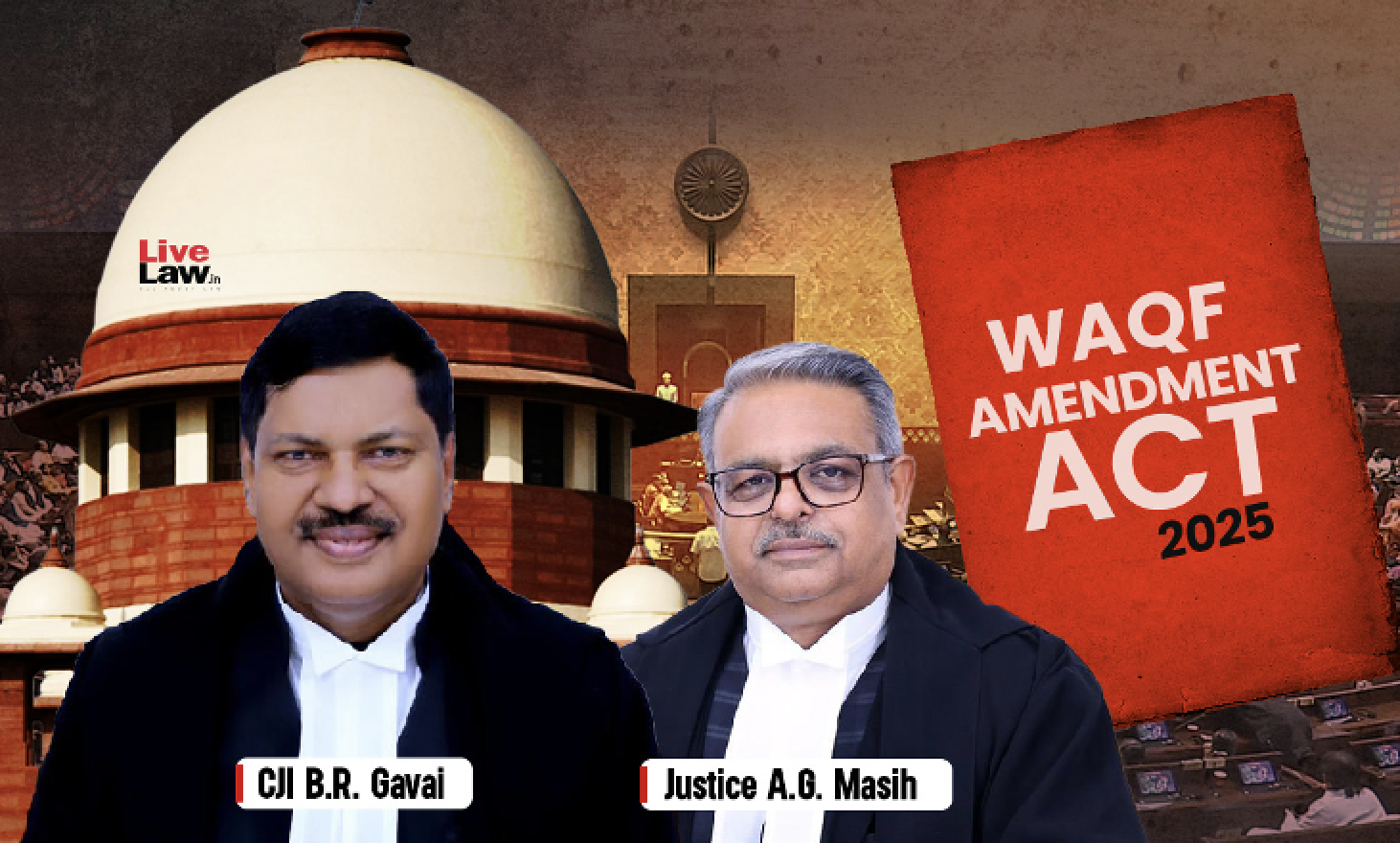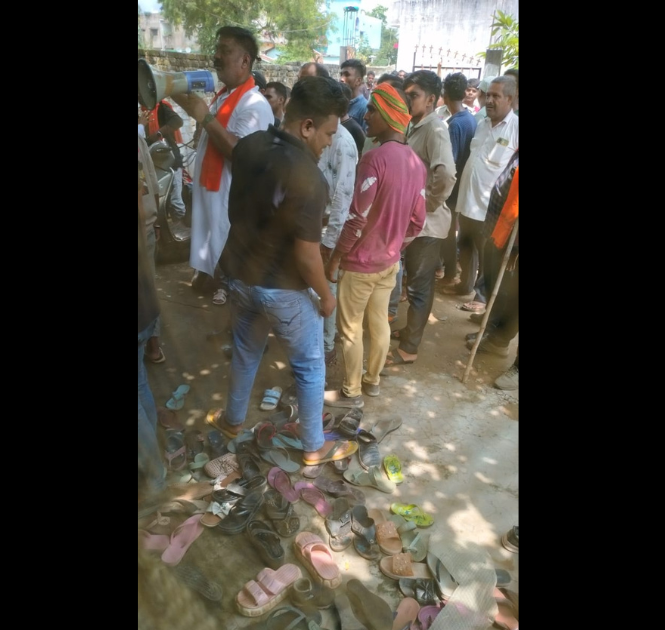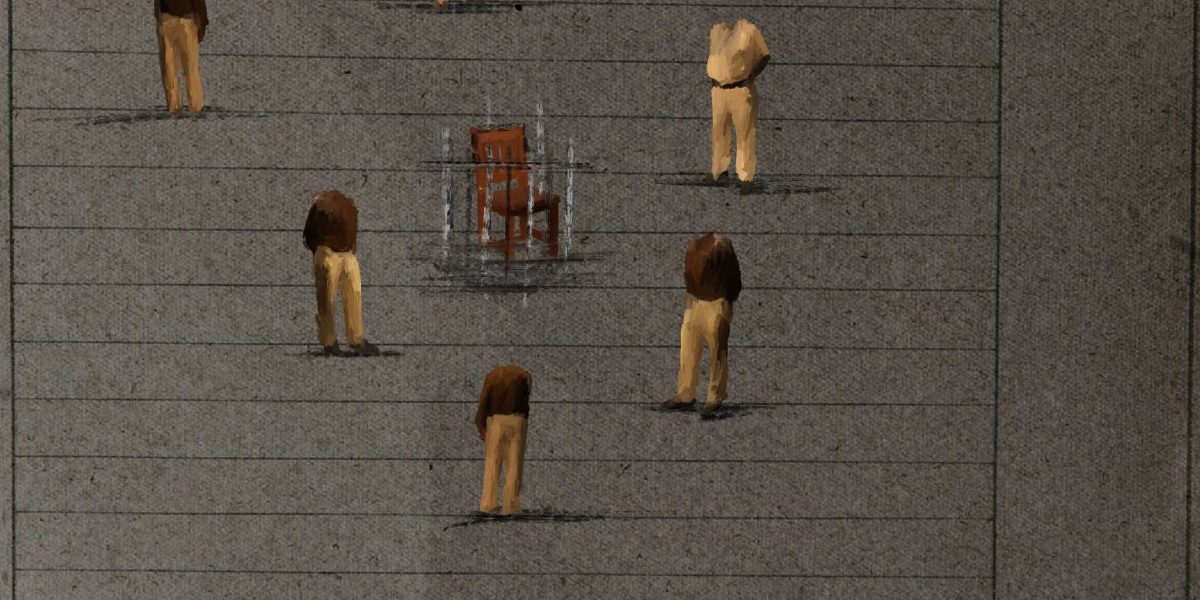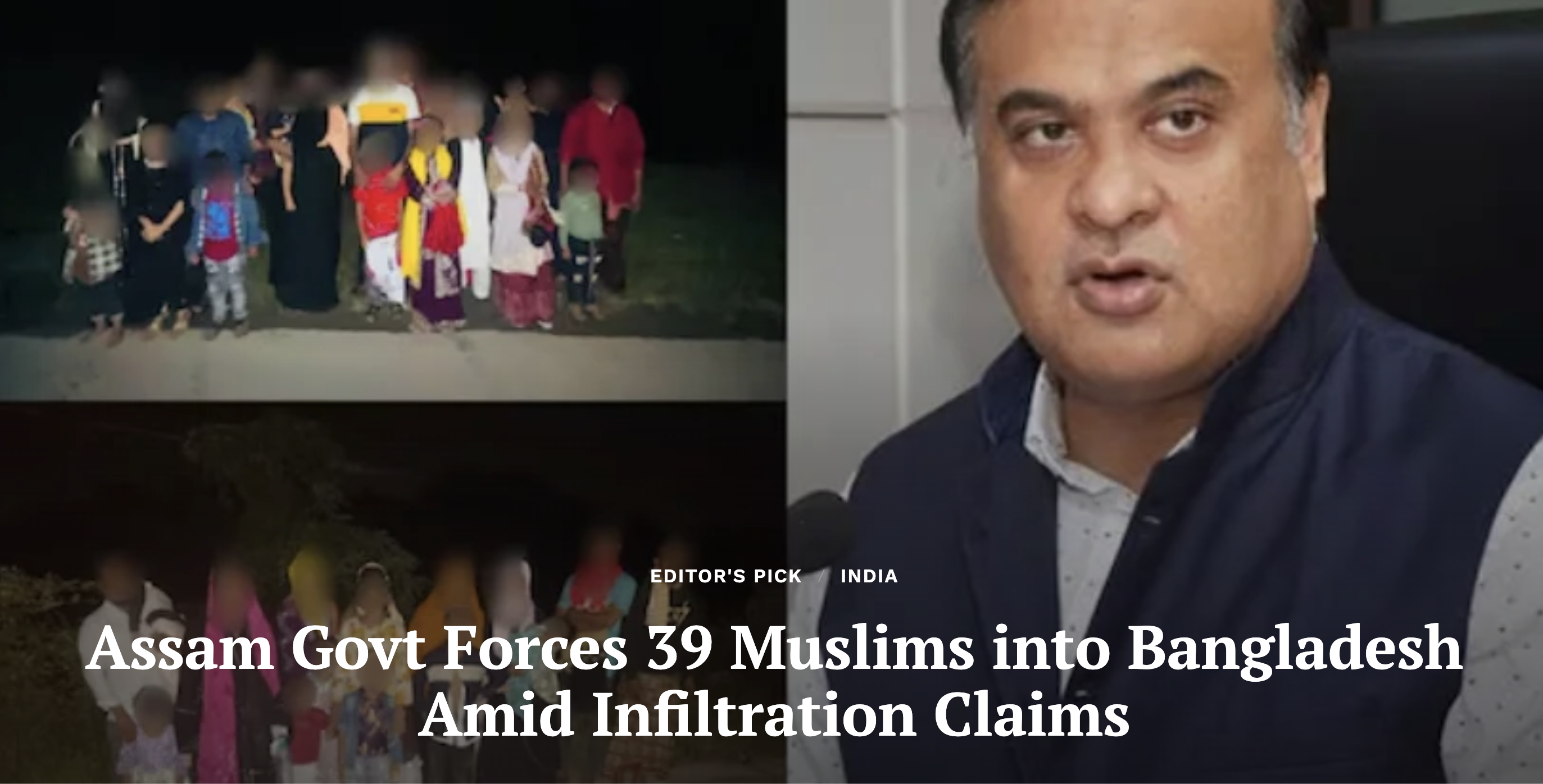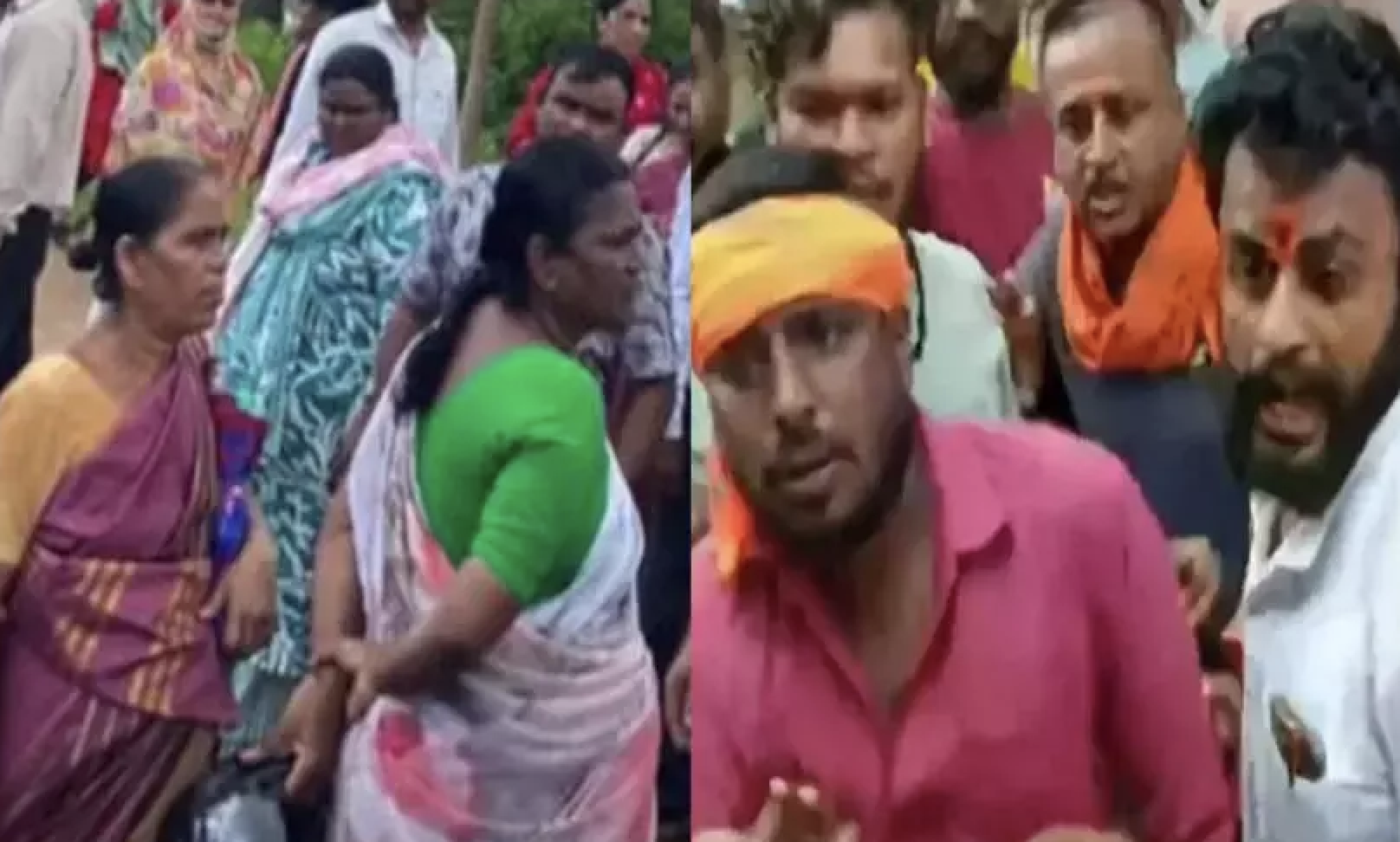
By Zeyad Masroor Khan / Two Circles
UTTAR PRADESH — As the toll of the Bharatiya Janata Party inched closer to the half-way mark in the Uttar Pradesh legislative elections, it was matched by the jubilation among the members of the saffron party. In the communally sensitive area of Mohammed Ali Road in Aligarh’s old town, BJP supporters gathered outside the police chowki and burned firecrackers and shouted slogans of Jai Shree Ram. In many other towns, the shops were closed and the silence was marred only by the conspicuous sound of firecrackers emerging from Hindu-majority localities.
On the other hand, a somber lull reigned in Muslim areas and ghettos. There was a sense of shock and unease that permeated the atmosphere. “It’s an anxious time. We were not anticipating that the BJP would win so easily,” a burqa-clad woman who oversaw the celebration said. Afreen Fatima, a Muslim-rights activist based in Allahabad (now changed to Prayagraj), thought otherwise. “These results weren’t unexpected to me at all. I had been saying all along that secular, liberal politics of the opposition was unlikely to bring a dent into BJP’s hardcore Hndu votebank. It’s just a reaffirmation that Indian politics can’t change until it recognises and takes on the issue of Hindutva. This can’t be countered by just rhetoric. There should be constitutional safeguards for Muslims.”
Fatima, a former student at the Jawaharlal Nehru University, says she was heartbroken by sadness that has been evident among many of the Muslims she knew. “The conversations among people of my family and friends is of despair. Some people in my family were expecting the Samajwadi Party to win by support of the Muslims and the farmers. Everybody around me is so hopeless today,” Fatima said.
There were many issues that analysts had predicted would work against the BJP in polls – inflation, anti-incumbency, farmers’ protests and the breakdown of healthcare infrastructure during the second wave of COVID-19. Many activists were hoping that the issue of stray stray cattle might become an important poll issue and hurt BJP’s chances. Eventually, the Bahujan Samaj Party emerged as the one which splintered the anti-BJP vote. They were placed second at many places and got over 10 percent vote share in many constituencies – the difference between the SP and BJP candidates in these seats.
Professor Madihur Rehman Sherwani, a former Professor at Aligarh Muslim Univertity and a prominet member of the civil society, told Twocircles.net that the BJP victory was the result of the election apparatus at the disposal of the party. “The BJP and the Sangh have dedicated cadres, a lot of financial resources and media machinery that amplifies their message and takes it to the common man. Only if any other organization rivals this apparatus, will they be able to battle the religious hatred that is sown in the minds of people,” he said. Sherwani also pointed out the opposition’s failure in using the farmers’ protest to their advantage. “The Samajwadi Party can’t just expect farmers to fall in their lap. Did they reach out to the farmers and workers to listen to their grievances? Did they promise them that they’d work for their interests? I am afraid not,” he added.
Shabnam Hashmi, a social activist based in New Delhi, currently tending to her ailing sister, said the organizational reports that she got had clearly pointed to a return of Samajwadi party to power. “I believe that either there is mass scale rigging of the Electronic Voting Machines or people of Uttar Pradesh have been criminalized beyond the point of recognition. It is so unexpected. This totally goes against what we were expecting,” said Hashmi. “If these are indeed the results, I see that a sign that fascism has arrived in India and there is no going back from there.”
Javed Anand, representing the civil rights group Muslims For Secular Democracy (MSD), told TwoCircles.net that it was the failure of Akhilesh Yadav to rise up in time against the threat of BJP’s communal politics. “I think the opposition parties were not able to take a united stand against the BJP. In West Bengal, Manta Banerjee took on the BJP’s communal rhetoric on its head. But Akhilesh Yadav failed to channelise the people’s anger against the party on the issues of unemployment, inflation and stray cattle issue. He got into the act of taking on the BJP just three months before the elections. Polls can’t be won like that.”
He said the results in Uttar Pradesh were in stark contrast to Punjab where ruling Congress was ousted by the Aam Aadmi party. “Uttar Pradesh under the Chief Ministership of Yogi Adityanath has been bad news for Mulsims from day one. They have been particulary nasty against Muslims, raising up issues like love jihad, ban on cattle slaughtre, arresting people and journalists for dissent. This is now set to continue,” said Anand.
Hussain Haidry, a Mumbai-based poet and activist, shared Hashmi’s disappointment, calling it ‘a failure of Indian democracy’. “People tried their best to fight the communal politics, but it was thwarted by communal forces. What more can people do now?”said Haidry. He believed the results will be instrumental in pushing Indian Muslims to the periphery of power of Indian politics. “The Muslims have been made electorally irrelevant. It is a signal to the world how 14 percent of the population in India has been virtually cast outside the polling process.” He said that there was a historical consolidation against the Bharatiya Janata Party, but they won it too easily in the end. “I won’t even say that all the people who voted for the BJP are communal. Some were swayed by their welfare politics, other by caste dynamics, a few by local factors. But yes, I believe a significant population voted on religious lines.”
The poet, sounding somber in telephonic conversation with TwoCirles.net, said this election result will embolden the right wing like no other election. “Now more right-wing Hindus will be pushed to the side of Hindu extremism. I won’t be surprised if there is renewed violence against the Muslims”, he added.
Ovais Sultan Khan, a social activist, said he believed the results would push a new wave of political churning within the Muslim community. “I don’t see this as a sad day. I see this as an indicator that there is an ongoing churning among the Muslim youth that they’d need to build their own politics and save themselves,” he said. Sultan said he thinks the resistance put by the Muslim community, who came out in large numbers to vote, should be celebrated. “There are two kinds of politics in India: one which sees the Muslims as villains and the other which sees them as victims. We should come out of this binary and create our own independent narratives.”
This article first appeared on twocircles.net


